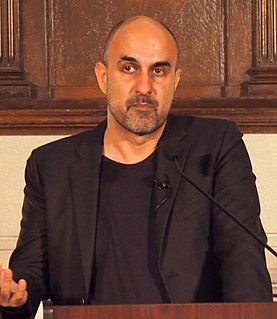A Quote by Anthony Burgess
I went abroad to Malaya and came back and tended naturally to gravitate towards the south, I suppose, near London where things seemed to be going on; but I'm still a Lancashire man, and what I want to write someday is a novel about Manchester. Very much a regional novel.
Related Quotes
It's very bad to write a novel by act of will. I can do a book of nonfiction work that way - just sign the contract and do the book because, provided the topic has some meaning for me, I know I can do it. But a novel is different. A novel is more like falling in love. You don't say, 'I'm going to fall in love next Tuesday, I'm going to begin my novel.' The novel has to come to you. It has to feel just like love.
Why do I like to write short stories? Well, I certainly didn't intend to. I was going to write a novel. And still! I still come up with ideas for novels. And I even start novels. But something happens to them. They break up. I look at what I really want to do with the material, and it never turns out to be a novel.
It's disingenous for me to say that I wasn't trying to write a moral novel. By its very nature as a novel about the Iraq War, Fobbit steps into the political conversation. There's no way to avoid that. I can appreciate that readers are probably going to line up on one side of the novel or the other. I hope they go to those polar extremes, actually.
The point is, that the function of the novel seems to be changing; it has become an outpost of journalism; we read novels for information about areas of life we don't know - Nigeria, South Africa, the American army, a coal-mining village, coteries in Chelsea, etc. We read to find out what is going on. One novel in five hundred or a thousand has the quality a novel should have to make it a novel - the quality of philosophy.
I realized I had a novel on my hands, but didn't know where it was going to go. So I thought, 'I'm going to do everything that you're not supposed to do when you plan a novel; I'm going to step back and let this thing take itself wherever it wants to go, and I'm not going to worry about how things connect until later on.'
I realized I had a novel on my hands, but didn't know where it was going to go. So I thought, 'I'm going to do everything that you're not supposed to do when you plan a novel; I'm going to step back and let this thing take itself wherever it wants to go, and I'm not going to worry about how things connect until later on.
The age of the book is not over. No way... But maybe the age of some books is over. People say to me sometimes 'Steve, are you ever going to write a straight novel, a serious novel' and by that they mean a novel about college professors who are having impotence problems or something like that. And I have to say those things just don't interest me. Why? I don't know. But it took me about twenty years to get over that question, and not be kind of ashamed about what I do, of the books I write.
I think a good story can do as much as a novel; not the exact same thing, of course, but just as much artistically. They're different beasts, but to tackle an expansive country like the United States, you're either going to write a big novel, or go in to various points on the map and write stories or poems.
I'm not entirely sure what a historical novel absolutely has to be, but you don't want a reader who loves a very traditional historical novel to go in with the expectation that this is going to deliver the same kind of reading experience. I think what's contemporary about my book has something to do with how condensed things are.
The average detective story is probably no worse than the average novel, but you never see the average novel. It doesn't get published. The average -- or only slightly above average -- detective story does.... Whereas the good novel is not at all the same kind of book as the bad novel. It is about entirely different things. But the good detective story and the bad detective story are about exactly the same things, and they are about them in very much the same way.



































